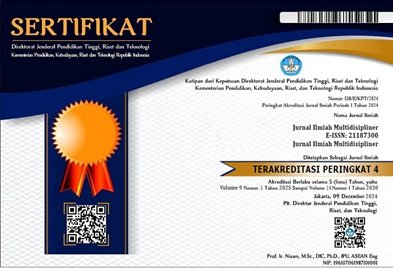THE CULTURE OF BABARIT FROM A PHILANTHROPIC PERSPECTIVE
(A Case Study On The Babarit Tradition In Pangandaran Regency, West Java)
Kata Kunci:
Culture, Babarit Tradition, PhilanthropyAbstrak
Babarit is a ritual commemorating the Islamic New Year and serves as an expression of gratitude to Allah SWT for the abundance of natural resources or as a form of appreciation for the completion of village roads. The uniqueness of this tradition lies in the fact that babarit encompasses two celebrations at once: the ritual commemorating the Islamic New Year (mapag taun) and the thanksgiving for agricultural produce (sedekah bumi). This ceremony is thus held both for the earth's blessings and to mark the Islamic New Year, and babarit is typically conducted in the village streets.The focus of this research is on the meanings and functions within the babarit tradition from a philanthropic perspective. There are two research questions in this study: 1) What are the philanthropic values contained in the babarit tradition in Pangandaran Regency? To answer these questions, the researcher using qualitative research methods comprising observation, interviews, and documentation. The results of this study indicate that the babarit tradition captures fundamental philanthropic values, wherein practices of generosity, sharing, contributions for organizing events, and community cooperation are deeply embedded in this tradition. Over time, the babarit tradition has been held to celebrate the harvest and to honor the Islamic New Year. This tradition is rich in meanings reflected in the various foods presented during the ritual. Babarit also encompasses three functions: religious function, social function, and cultural function.





